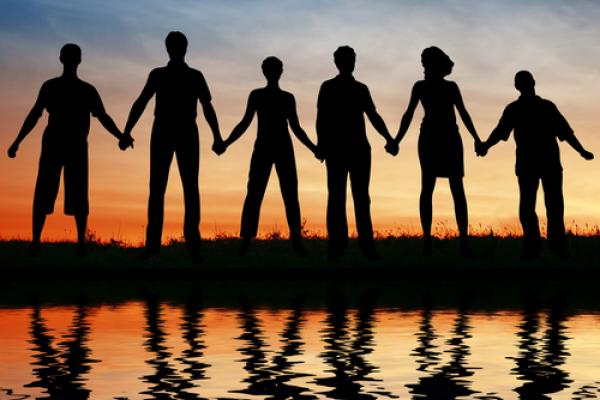Editor's Note: This post is part of our monthly newsletter Faith in Action. To sign up for the newsletter, complete with commentary and resources for church leaders and mobilizers, click HERE.
"I expect and am willing to be persecuted, imprisoned, and bound for advocating African rights. And I should deserve to be a slave myself if I shrunk from that duty or danger." -William Lloyd Garrison, Abolitionist (1805 - 1879)
With Black History Month coming up in February, many of us will remember the civil rights struggles that have brought us to where we are today. I recently read a fascinating book about that movement focused on the role of women in those efforts called Freedom’s Daughters. It highlights past generations of women activists, both black and white. They led in the struggles for abolition, desegregation, civil rights, and women’s suffrage. These movements carry with them the roots of our contemporary work for justice.
As I considered the lessons from that book I found myself resonating with many challenges, failures, and victories these women experienced, much of which was based on the race and gender dynamics of the day.
As an educated white woman who began my foray into community organizing though a summer internship in my early 20s — like many of the young women in Freedom Summer coming down from the North — I had not yet delved into the complicated nature of race relations in the United States. I started my summer feeling competent, a person who could learn and adapt to changes as I had on many previous international mission experiences. I carried with me an overly simplified belief in the romantic “beloved community.” The beloved community would come about as we worked together, prayed, and marched.
I was not originally prepared for my own internal struggles that would haunt me in the early years (and still sometimes arise) — questioning my place in a movement primarily focused on justice for immigrant communities. Despite my sense of solidarity with the people that I was working with, I still wrestled with many inner doubts. Would I be accepted as a young white woman into a movement about immigrant “power?” What is my legitimate place in the struggle and in exerting leadership? How do I deal with gender and power dynamics that still exist in the movement and in the church?
True solidarity is a tricky thing. The reality is that those who are coming from the outside do not know what it is like to live in a neighborhood with gang violence. They do not live in constant fear that deportation could separate them from their kids and families. They may have never supported a family on minimum wage or dealt with a slum landlord. Outsiders have the privilege of walking away. So those of us who can walk away must make genuine risks alongside the oppressed to truly link our lives together in solidarity. Love for the other compels it.
In the civil rights movement, white students joined with blacks to integrate bus stations, register voters, and march in KKK territories. Some had family and friends abandoned them due to their support for the rights of blacks. They were beaten with rods and fists. They went to jail by the hundreds, facing humiliation and degradation by police. They refused bail. Homes where they stayed were shot at or set on fire at night by white supremacists. Some were killed. They risked their lives alongside the community and shouldered the danger and violence together, pushing the wheels of change forward in the darkness.
I believe this action represented true love in the spirit of Christ who loved us first, “who gave himself for us to redeem us from all wickedness and to purify for himself a people that are his very own, eager to do what is good.” (2 Titus 2:14). He is our hope.
However, as I studied the history of the civil rights movement, I found that over time various issues connected to race and gender inequality eventually severed relationships between men and women, blacks and whites. For example, when the Student Nonviolent Coordinating Committee leaders focused on increasing power among the black community, it pushed white leaders out. Many organizations from the civil rights movement slowly unraveled and imploded.
We must not let “personal” issues of race, gender, and power between us be shoved aside in a systemic way, jeopardizing the work by breaking the workers into pieces. We must bring our internal issues to light with one another, building trust and reconciliation in the process, standing on the promise that “if we walk in the light, as he is in the light, we have fellowship with one another, and the blood of Jesus, his Son, purifies us from all sin.” I John 1:7
So as we in the immigrant rights and justice movements set our eyes on the climb ahead, it is certain that the crucible will heat up — internally and externally. We have to be vigilant, sensitive, and patient with one another, remembering the past and taking steps to realize justice in our day-to-day lives and in our broad struggles for systemic change.
The beloved community is a beautiful and fragile thing, but with God all things are possible.
Wendy Tarr is the Director of CLUE Orange County, which organizes local churches and religious leaders into the movement for immigrant rights and economic justice for the working poor.
Photo: Community image, Pavel L Photo and Video / Shutterstock.com
Got something to say about what you're reading? We value your feedback!
